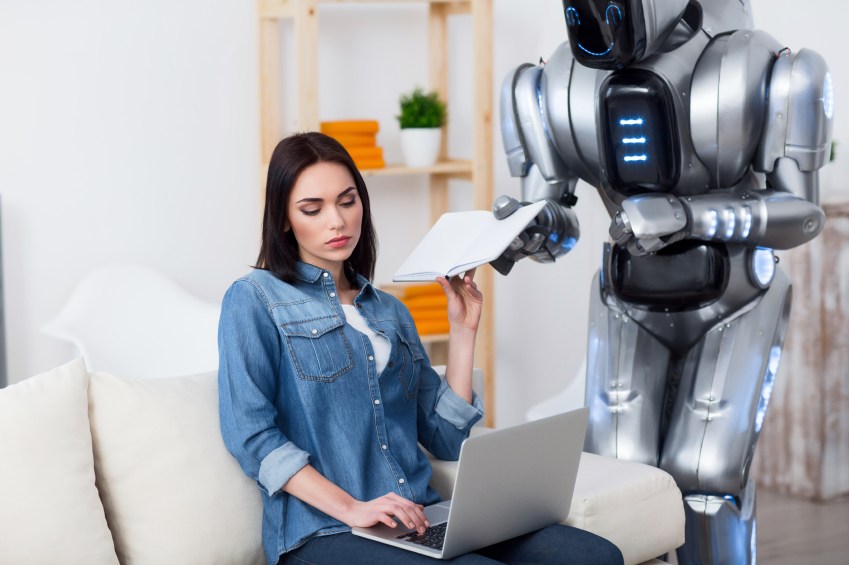Future of Work – Robots & Workers Will Collaborate
May 12, 2016

There has been a lot of social media buzz about robotics and the impact on the workplace. Some industries such as manufacturing are embracing the robotics revolution as it solves the shortage of worker dilemma for repetitive tasks that can be programmed.
The fear of robots taking away jobs is prevalent however futurists are saying that jobs won’t be lost to robots rather that the work will disperse into different areas. If we look at this optimistically we can see the merits of having robots do the mundane stuff and we humans get to focus energy on the fun aspects of work such as collaborating, creating and innovating.
Our lives and work are already inundated with tools that are preparing us for robots – think Siri for example – she is a computer voice connected to all sorts of algorithms and information and provides it in a voice. Siri could easily be programmed into a robot (although we could consider our smart phones robots) that looks and talks like a human.
Fast forward to 2030 – interacting and leveraging robots will be the norm. Generations Y (those in their 20’s to early 30’s) and Z (those under 20) are already engaging with voice activated, touch controlled technology that is preparing them for a workplace that will be robot friendly.
Recently I came upon an experiment by Georgia Tech on artificial intelligence that you dance with. Each person who engages and dances with the AI provides data and helps the computer to create algorithms of how to dance. Lumen AI is an experiment in collaborating with AI to innovate and create.
An article in Harvard Business Review January 2016 stated that companies are now making innovation part of everyone’s job description. Innovation is the biggest opportunity for organizations and the future of work. What if partnering with a robot or AI sped up the creative process and that along with the brainstorming and idea sharing of humans the robot and AI collaborated with the brainstorming to amalgamate what is being shared, disseminate it, calculate success probabilities and more? How would this speed up innovation for business?
With all change there is fear – fear of losing a job, fear of losing identity, fear of being irrelevant AND what if those fears were shifted into thinking about the possibilities of partnering with robots?
What’s to gain? Increased time for creativity and fun at work, increased innovation and synergy among teams comprised of both workers and robots, faster skill development for workers as they interact and learn from their robot colleagues, much more logic in the workplace and so much more.
Also there is a huge job opportunity happening in the actual field of robotics, robotic engineers, programmers, testers and more. The biggest obstacle to having robotics be full scale now is the fear of change and the required skill set to collaborate with technology. Just as there is a trend towards everyone being an innovator there is also a trend for everyone to develop leadership skill in order to meet the fast change that technology is creating.